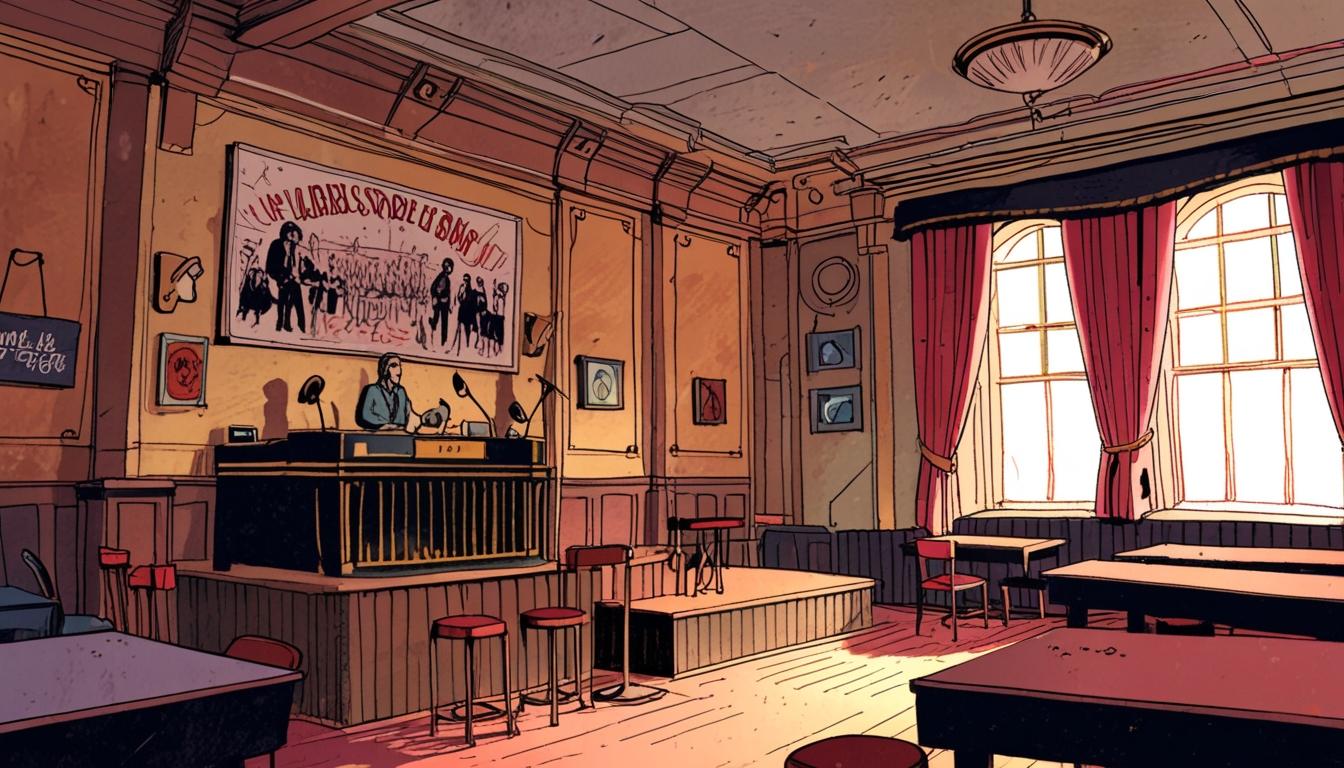A new publication entitled “Glasgow's Greatest Hits” has been released, offering a captivating exploration of the city’s vibrant music history. This compilation, published on June 5, has been brought together by the founders of Glasgow City Music Tours—Fiona Shepherd, Alison Stroak, and Jonathan Trew—who have dedicated the past decade to celebrating local music culture.
The book serves as a narrative guide through some of Glasgow’s most iconic musical venues, both past and present, including the Empire, the Apollo, the Grand Ole Opry, the Barrowland Ballroom, King Tut’s Wah Wah Hut, the Hydro, the 13th Note, and the Scotia Bar. It encapsulates pivotal performances, historic debuts, and notable artist visits, reflecting on the moments that have shaped the city’s musical landscape.
Its introduction notes, "Glasgow’s Greatest Hits collects our most beloved stories and celebrates our favourite musicians, venues and concerts. It is by no means comprehensive, nor is it unbiased, but we hope it captures the spirit of the city’s music scene in all its gallus glory."
Among the stories highlighted are those of renowned Glaswegian bands such as Simple Minds, Deacon Blue, Orange Juice, The Blue Nile, Altered Images, Franz Ferdinand, Belle and Sebastian, and Eddi Reader. The volume delves into the lives and careers of these influential acts, tracing their beginnings and contributions to the music industry.
Remarkable events recounted include Frank Sinatra’s week-long residency at the Empire in 1953, The Beatles’ concerts at local venues from 1963 to 1965, and Louis Armstrong's groundbreaking performance at the Kelvin Hall in 1956. Other notable performances include Prince's late-night set at The Garage in 1995, and the rebirth of the Barrowland Ballroom, which was revitalised when Simple Minds filmed their “Waterfront” video there in 1983. The book also recounts how Oasis was famously signed by Creation Records’ Alan McGee after they implausibly crashed a gig at King Tut’s in 1993, having travelled from Manchester.
Included in the coverage is the legacy of Lonnie Donegan, who significantly influenced the 1950s skiffle movement in Britain, which blended elements of various musical genres and inspired future talents like The Beatles and The Rolling Stones. The narrative also honours Alex Harvey, a key figure in the Scottish rock scene during the 1970s, who was an inspiration to AC/DC’s Bon Scott.
The book's exploration of Glasgow's musical heritage also highlights lesser-known figures, such as Ella Logan, a talented music hall performer whose career was affected by political controversy, and Ivor Cutler, a multi-faceted artist whose contributions spanned decades. Additionally, it tracks the rise of comedian and musician Billy Connolly, whose roots in the Scotia Bar’s folk music scene laid the foundation for his successful career that intertwined comedy and music.
Other notable moments featured include concerts by seminal acts like Pink Floyd, Jimi Hendrix, and Fleetwood Mac at the now-closed Green's Playhouse, as well as Lou Reed’s tumultuous performance and Leonard Cohen’s memorable connection to a victorious Scotland football match in Hampden.
“Glasgow's Greatest Hits” also chronicles the challenges faced by venues such as The Arches and discusses the television opportunities that propelled Glasgow artists into the limelight, including Lulu and Lena Martell.
Justin Currie, lead singer of Del Amitri and contributor to the book, remarked on the unique sound that emanates from Glasgow's music scene, finding it difficult to define yet instinctively detectable. He stated, “...an ineffable melancholy, a lilt or a kink that can only be a product of my beloved, forlorn, glamorously wrecked city.”
This new guide to the musical heritage of Glasgow not only serves to document significant musical milestones but also immortalises the artists and venues that have left an indelible mark on the city’s cultural fabric.
Source: Noah Wire Services
